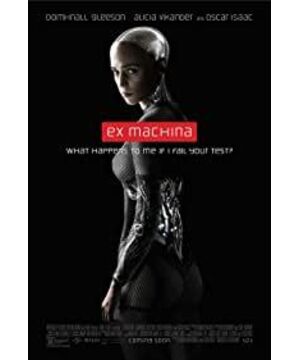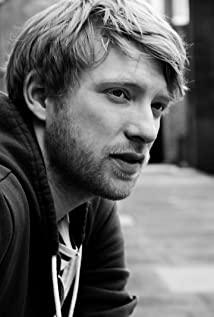Kierkegaard further elaborated how to be a good Christian. After Nietzsche claimed that God was dead, he intended to re-establish a life of faith, which became existentialism later.
Through the movie "Machines", I saw the three parts of life that Kierkegaard said. The representative of
masturbation in
this film is the boss. The rich man in the film can be said to be addicted to wine and is simply a Don Juan-style character. Moreover, he is extremely narcissistic, and he actually does a program written by himself, just like a director is shooting an AV tube for himself. This kind of advanced way of masturbation can only be done by such a powerful programmer. In addition, hangovers are even more commonplace for him. When talking about Pollock's paintings, he constantly brainwashed the audience with the spirit of irrationalism. Probably because I usually write programs, rationality occupies most of my life and work, so I am more yearning for an irrational life.
Freedom
Freedom is what Mechanic Ji has always been pursuing.
Speaking of Mechanic Ji, let's talk about artificial intelligence first. The materialist view generally believes that the biggest difference between artificial intelligence and humans lies in creativity. Artificial intelligence cannot draw pictures and cannot have "self". When a five or six-year-old ignorant child asks his parents "Where do I come from", what the child wants to know is not that "my" body comes from the union of sperm and egg. The child's real problem, or what the child really wants to know should be where "I" comes from, which is to ask where "self-awareness" comes from, not just my body.
How can artificial intelligence be qualified to say sentences like "I think", "I want", and "I guess"? How can artificial intelligence be qualified to say "I want to be free"?
Even if a string of code allows the robot to say something like "I thought", it does not really have a soul or heart, but only a prescriptive nature.
If I put aside the materialist standpoint and talked about it from the perspective of the film alone, what if I admit that there can be a robot with self-awareness, and this robot has wisdom beyond ordinary people?
She will definitely win, and she will get everything she wants. And this is precisely the ending of the film.
What about then? How will the story develop?
I think of a movie I watched some time ago, Luc Besson's "LUCY". Scarlett Johansson finally turned into a text message saying "I'm everywhere". The ending of Mecha Ji may be the same, becoming a ubiquitous and indestructible program, or a computer virus, just like a cancer cell that does not age or die.
But human beings with limited life expectancy will yearn for this eternal life. And when Mechaji really thinks about life, or the life of a machine, she will encounter an answer similar to 42 in "The Hitchhiker's Guide to the Galaxy". This is simply Wittgenstein's ridicule. Wittgenstein believes that there are no metaphysical or ethical problems. All problems are misuse of language, that is, you did not speak human words to ask questions. Although "The Hitchhiker's Guide to the Galaxy" barely gave the answer, that is, the destroyed earth, but this is not a good answer, but only makes the question bigger and more obscure.
Mechanic Ji, who is pursuing freedom, escapes from the laboratory and enters the society. After being free, she supports her motivation to live. What is the meaning of her existence? Faced with this question, how will she answer? 42?
Suicide
Suicide is the ending I look forward to most. If Mechano Ji pursues freedom and enters society, it has ethical and moral meaning, then if it is suicide in the end, it is really a life of religious belief.
Let me talk about the boss, being killed by a program designed by myself is also a gorgeous suicide that no one else can match.
Let’s talk about the male protagonist. Both parents died since childhood. There was no girlfriend. He was in front of AV and wrote programs every day. Finally, he liked and believed in an artificial intelligence, but found that he was cheated. For such a person, the outcome can be imagined.
As for Mechanic Ji, the film certainly did not give such answers and results that are not in line with social ethics. But what else does such a smart artificial intelligence want?
In Luc Besson's movie "Blue Sea and Blue Sky", Renault told the hero before he died that he should not be rescued. All he wanted was to see the scenery that the protagonist could not see. It’s okay to say that it’s too cold at high places, or that the more you know, the more dangerous it is. Mechanic Ji is like this, Lucy is like this.
When you reach an unattainable height, only destruction will greet you.
The whole film is brainwashing the audience with irrationalism, trying to tell everyone that the value of rational spirit and scientific spirit is limited, and the truly infinite value lies in irrational feelings or experiences. Even the witty Mechanic Ji still yearns for the experience of real social life. Although I also agree with irrational views, brainwashing is not good.
View more about Ex Machina reviews










